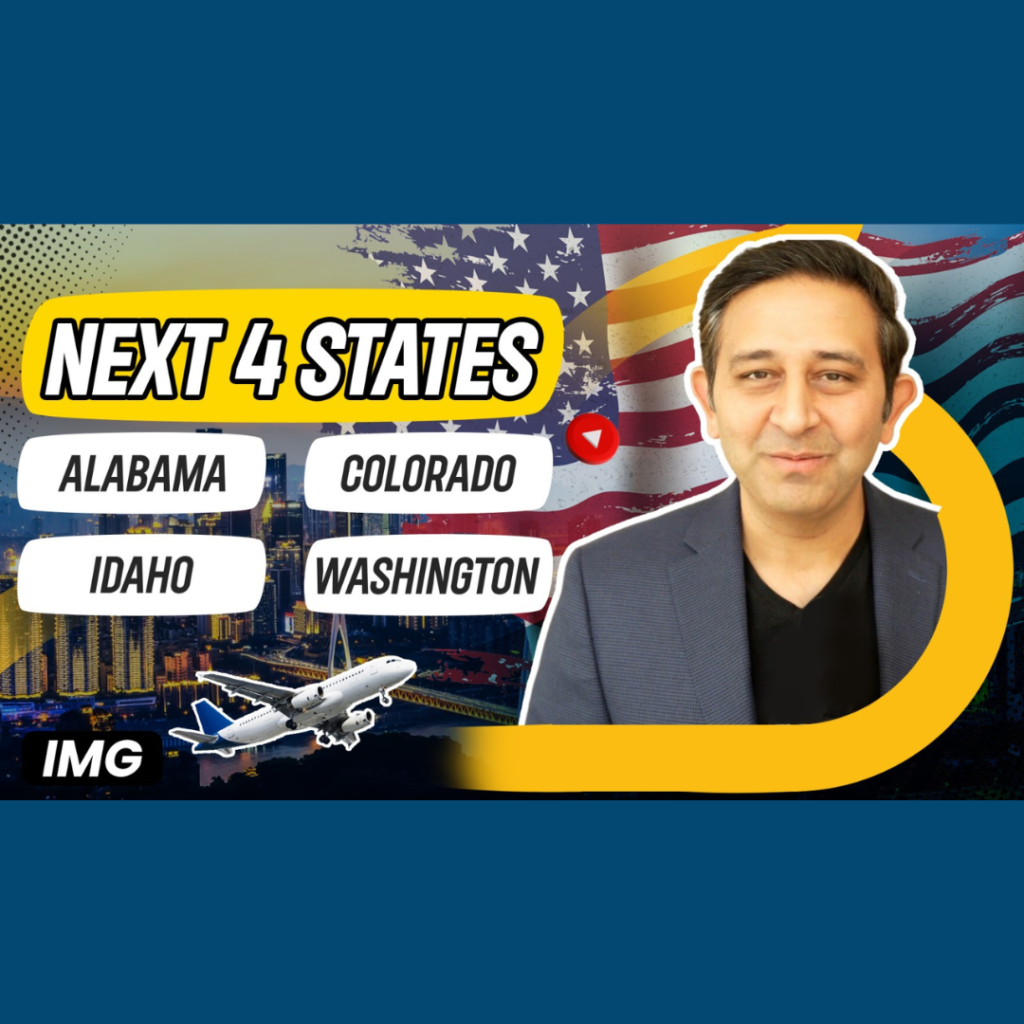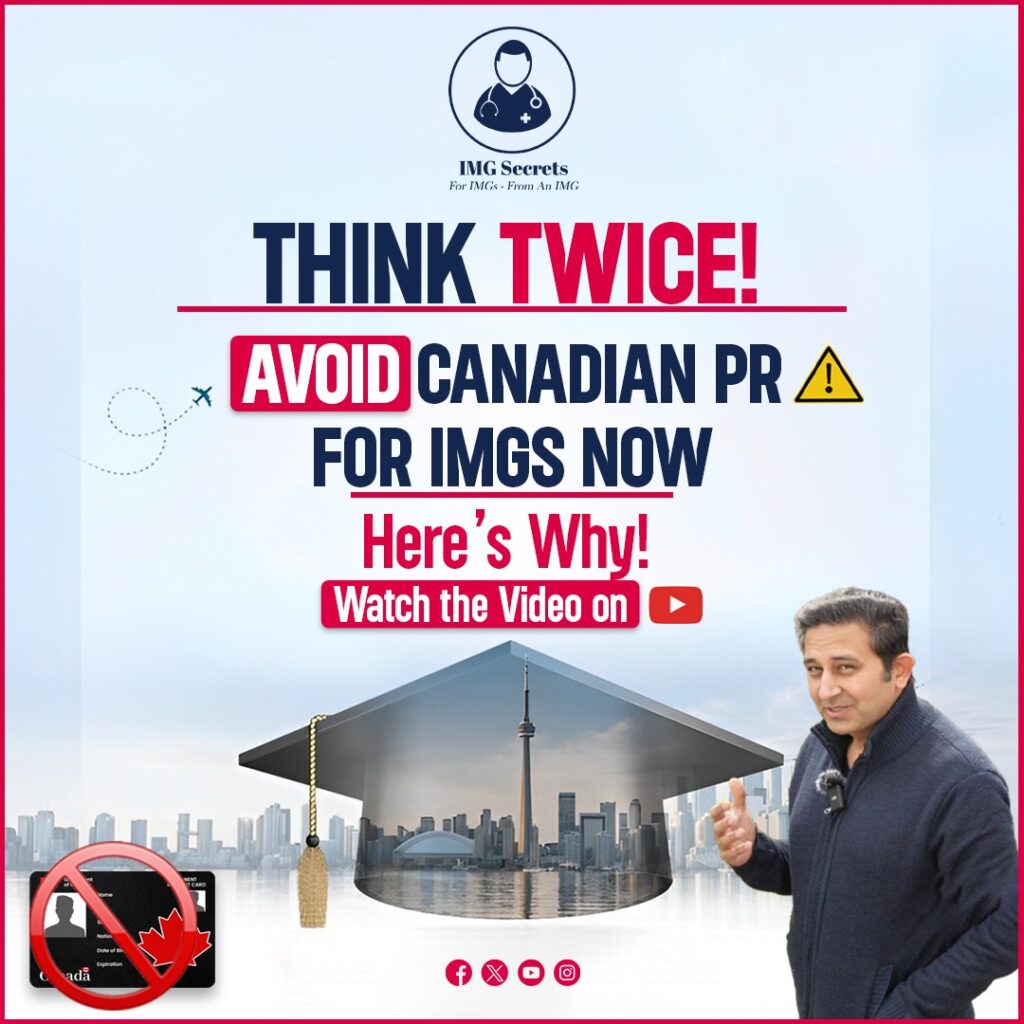Postgraduate Medical Training: Best Countries for IMGs
Navigating the path of postgraduate medical training in Canada and other countries can be overwhelming, especially for international medical graduates (IMGs) looking to establish a career abroad. Choosing the right country for your training is a significant decision, that influences your professional growth, work-life balance, and financial stability. This article explores some of the top destinations for medical training, including the U.S., Canada, the UK, and Australia, and provides an overview of residency and fellowship programs for IMGs. Understanding Residency and Fellowship Programs Before diving into specific countries, it’s essential to understand the difference between residency and fellowship programs. Residency Programs: Residency is a period of supervised training that follows medical school. It’s designed to give graduates hands-on experience in a clinical setting. During residency, doctors work under the guidance of experienced physicians to develop their skills in a specific specialty, such as internal medicine, surgery, or pediatrics. For IMGs, securing a residency often requires passing exams, obtaining relevant certifications, and navigating complex application processes. Fellowship Programs: After completing a residency, doctors can pursue a fellowship to gain specialized training in a subfield of their chosen specialty, such as cardiology, oncology, or gastroenterology. Fellowship programs are typically more focused and research-oriented, allowing physicians to become experts in a specific area of medicine. Fellowships are highly competitive and often require an excellent academic record, clinical skills, and sometimes prior research experience. Key Considerations for International Medical Graduates For international medical graduates, the journey into postgraduate medical training includes understanding residency requirements, training length, education quality, work-life balance, financial prospects, and long-term career opportunities. Residency Requirements: Each country has its own set of requirements for IMGs to enter residency or fellowship programs. These often include exams, certifications, and sometimes even specific visas or licenses. Quality of Training: High-quality training is crucial as it directly impacts your ability to provide excellent patient care. Countries like the U.S. and Canada are renowned for their robust residency and fellowship programs. Work-Life Balance: Balancing professional commitments with personal life is essential. While some countries offer better work-life balance, others may demand more rigorous working hours. Financial Considerations: This includes potential salary, cost of living, and how much you can save during and after your training. Future Opportunities: Look into career progression, job stability, and ease of transitioning to higher roles after completing your training. United States: A Leading Choice for IMGs The United States remains a top choice for many international medical graduates due to its excellent reputation for postgraduate medical training. The U.S. offers various pathways, including residency and fellowship programs, and is known for its comprehensive clinical exposure and research opportunities. For IMGs: Entering the U.S. System through USMLE and ERASInternational medical graduates (IMGs) aiming for postgraduate medical training in the U.S. must pass the USMLE (United States Medical Licensing Examination) and apply through the Electronic Residency Application Service (ERAS). USMLE is a three-step exam testing your medical knowledge and clinical skills: Step 1: Assesses basic medical sciences. Step 2 CK: Evaluate clinical knowledge. Step 3: Test your ability to manage patients independently. After passing USMLE, IMGs use ERAS to apply for residency positions. The process involves: Crafting an application with educational background, USMLE scores, and personal statements. Securing strong letters of recommendation. Selecting and applying to programs, followed by interviews. Participating in the Match process to secure a residency spot. Navigating USMLE and ERAS is crucial for IMGs seeking to advance their careers in the U.S., offering access to high-quality training and research opportunities. The financial prospects in the U.S. are highly attractive, with competitive salaries and the strongest currency compared to other countries. Additionally, the U.S. offers a more inclusive environment with relatively lower instances of workplace discrimination against IMGs. Canada: A Great Alternative with Some Challenges Postgraduate medical training in Canada is a highly sought-after option for international medical graduates (IMGs) due to its reputable healthcare system and high-quality training programs. The process is similar to the U.S. system but comes with its own set of complexities. To begin their training in Canada, IMGs must first pass the Medical Council of Canada Qualifying Examination (MCCQE) Part I, which assesses the candidate’s medical knowledge and clinical decision-making skills. Additional exams, such as the National Assessment Collaboration Objective Structured Clinical Examination (NAC OSCE), may also be required, depending on the province and program requirements. After clearing the necessary exams, IMGs must apply for residency positions through the Canadian Residency Matching Service (CaRMS). This application process involves submitting documents like exam scores, educational credentials, and reference letters. The competition is intense, and securing a spot can be challenging, especially for IMGs, who often face limitations on the number of positions available to them. Despite these challenges, Canada remains a top choice due to its excellent work-life balance, structured training programs, and the opportunity to work in a system that values patient-centered care. While Canada offers excellent training and a good work-life balance, it is known for its high cost of living, especially in major cities like Toronto and Vancouver. Salaries are slightly lower than in the U.S., and tax rates can be higher. However, Canadian certification provides a smoother transition to working in the U.S., making it an appealing option for those unable to secure a position in the USA. United Kingdom: Rigorous Training with Lower Pay The UK’s medical training system differs significantly from North America’s, as it involves multiple stages and examinations before achieving a Certificate of Completion of Training (CCT). International medical graduate residency programs in the UK, known as core training, provide a solid foundation for those pursuing a specialty through fellowship programs. While the UK offers high-quality training and a good work-life balance, salaries are generally lower compared to the U.S. and Canada. Many IMGs in the UK seek opportunities in the U.S. or Canada post-training, driven by the desire for better financial rewards and career progression. Despite these challenges, the UK remains an attractive option for those seeking structured and rigorous postgraduate medical training. Australia: Balancing Quality









